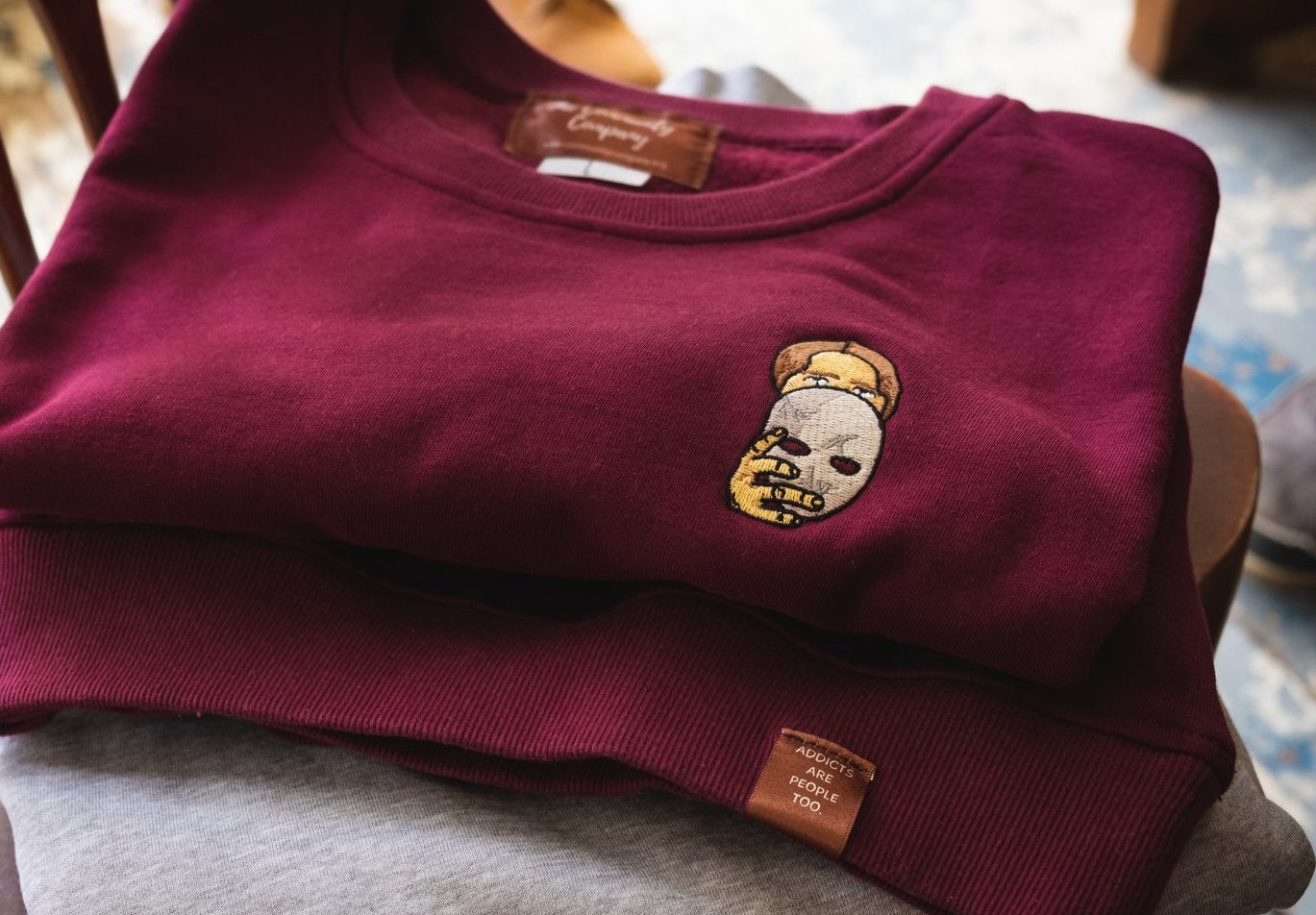ELORA – Two young men who were in the Portage Ontario residential addiction recovery program have created the logo for a line of sweaters that bear a strong message: addicts are people too.
It’s a concept that’s dear to their hearts after completing the six-month program at the Elora-based centre.
And the fact the project has come to fruition, and that people are wearing the shirts, is deeply satisfying.
The idea came from Justin Chan, founder of The Community Company, a Guelph-based business that works with social justice and social benefit organizations to make and sell products that benefit the organizations financially and help spread their message.
“The Community Company is social enterprise; it’s a business, and has elements of non-profit,” Chan said in an interview.
“It’s something I’m really proud of.”
Chan approaches non-profit organizations, works with their clients, and brainstorms a product the client can create and the Community Company can manufacture and sell.
Ashley-Ann Maginnis, manager of development at Portage, said a staff member heard about the company “and the wonderful things Justin has done.
“We thought it would be a great opportunity for us as well.”
So Chan came to the site, spoke to youths in the program, and they started brainstorming.
“There are people who believe addicts are monsters. Monsters who they want to shield from their friends and family, who like to take away from others, and who are a tumour in society,” 17-year-old Tobias, one of the creators, said in a statement.
“I want you to know that we are people too.”
Ben, 15, the other creator, added, “The non-sober me was a dark person who pushed everyone away and did whatever to get drugs. The sober me, after entering recovery, feels socially normal and good.
“You have this dark, addiction side of you, but that’s only a mask covering what’s really on the inside.”
For their privacy and confidentiality, the teens are using pseudonyms.
But they are real people and graduates of the Portage program who have returned to high school.
The program taught them that people with addictions are suffering from a dependency, Maginnis said.
It’s not a character flaw and certainly not a sign of weakness to need help.
“They wanted to reveal the face behind the mask; that youth who suffer from addiction are not monsters,” she said.
“And how rewarding it is for them to see people wearing their shirts.”
Maginnis said operating with COVID-19 has been a challenge, as they have had to cut capacity at the residential facility by half.
She said Portage officials were able to secure mobile housing units and youth entering the program must quarantine there for two weeks before entering the main facility.
And because of social isolation, many young people are turning to drugs and alcohol to get them through. So demand is up.
Funding for Portage comes through the Ministry of Health and the Ministry of Children, Community and Social Services, but the program also relies on fundraising to cover expenses related to outings, bursaries and aftercare.
Proceeds from the sale of these shirts will help Portage continue these programs.
Chan said it’s very rewarding for him to work with community groups and witness for himself how empowering it is for their clients.
In the past he’s worked on homelessness and wellness projects.
For this project, “these two boys used the lowest period in their lives and turned it into something powerful,” Chan said.
“They checked into rehab and changed their lives. I find it so inspiring.”
Officials say the high-quality sweaters sell for $45. They can be ordered online at communitycompany.org.




